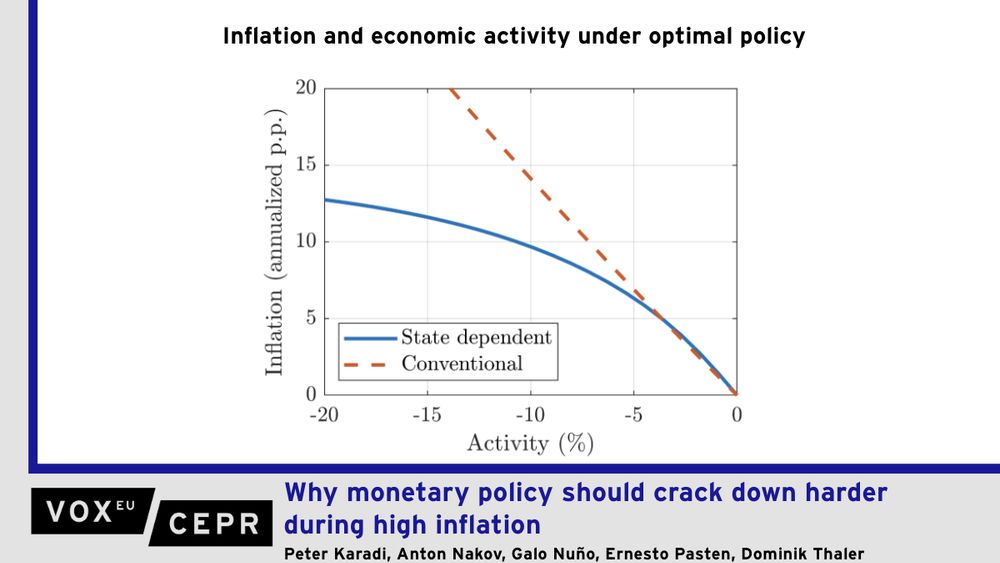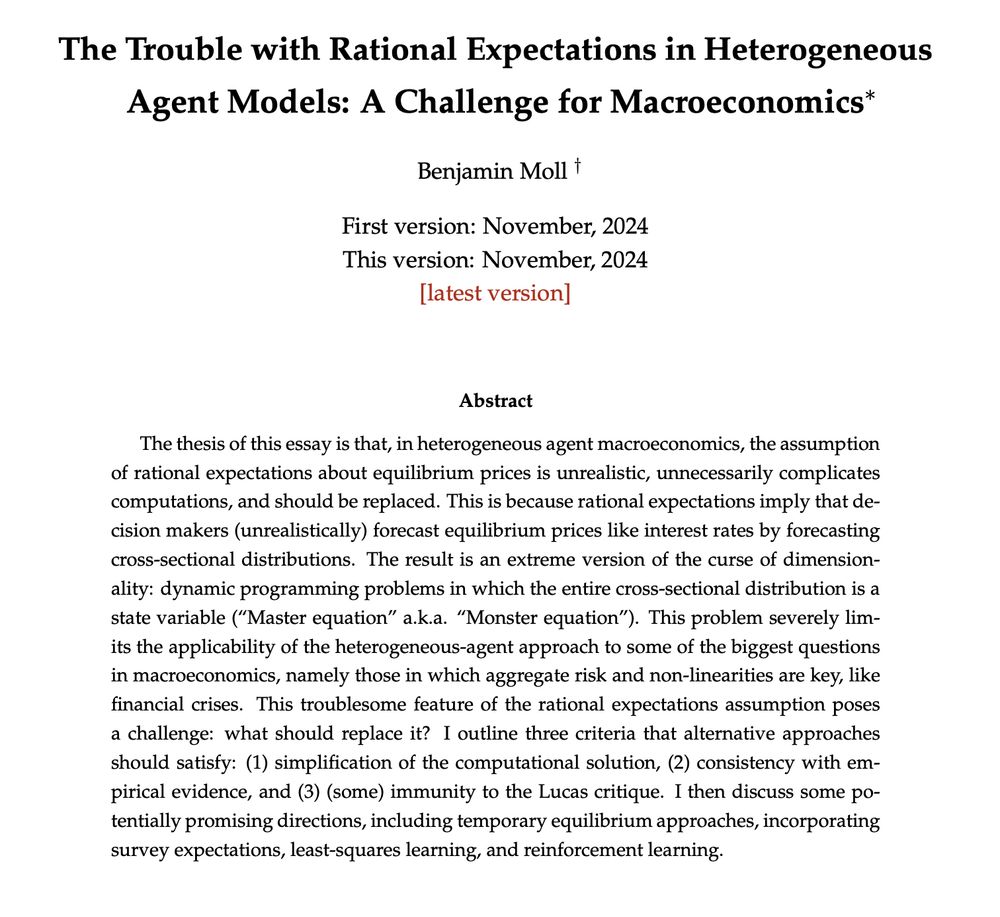by Galo Nuño
Reposted by: Galo Nuño
by Jesús Fernández‐Villaverde — Reposted by: Galo Nuño
Reposted by: Galo Nuño
by Jesús Fernández‐Villaverde — Reposted by: Galo Nuño, Lars P. Feld, John G. McNutt
by Galo Nuño
by Nezih Guner — Reposted by: Galo Nuño
Reposted by: Galo Nuño, Jonas Dovern
by Jesús Fernández‐Villaverde — Reposted by: Galo Nuño
Reposted by: Galo Nuño
Reposted by: Galo Nuño
by Galo Nuño
by Galo Nuño
The standard view in macro is that r* depends exclusively on structural factors such as productivity growth or demographics.
A short twitter 🧵 about a new paper
x.com/NunoGalo/sta...

Reposted by: Galo Nuño
by Galo Nuño
Reposted by: Galo Nuño
Reposted by: Galo Nuño
Reposted by: Galo Nuño
Reposted by: Galo Nuño
Reposted by: Galo Nuño
Reposted by: Galo Nuño
@peterkaradi.bsky.social @galonuno.bsky.social @ernestopasten.bsky.social et al.
cepr.org/voxeu/column...
#EconSky

Reposted by: Galo Nuño
Reposted by: Galo Nuño
Reposted by: Galo Nuño
@galonuno.bsky.social lo hace aquí con gracia para algo que producimos y que es muy valioso. Tanto que se los quedan fuera.
Dedicado a aquellos de "en el sector público no se produce"
nadaesgratis.es/admin/espano...

by Fatih Guvenen — Reposted by: Galo Nuño
View post
by Galo Nuño — Reposted by: Hans Degryse
by Alex Imas — Reposted by: Galo Nuño, Stefan Nagel, Leo Kaas , and 2 more Galo Nuño, Stefan Nagel, Leo Kaas, Klaus Adam, Michael D. Bauer
by Galo Nuño

